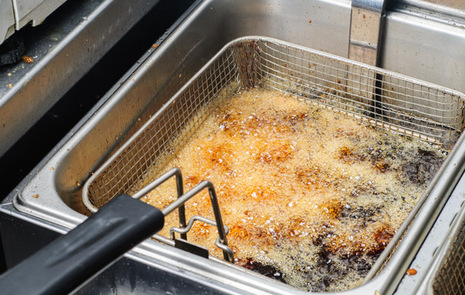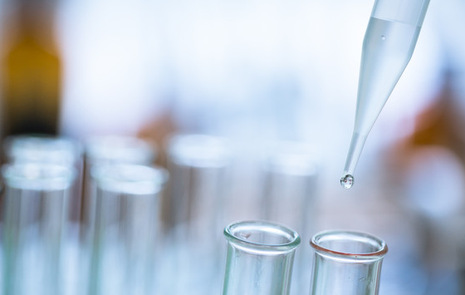On livsmedelsverket.se we use cookies to help improve your experience of our website. You can choose to accept all cookies, or choose to only accept the cookies that are strictly necessary to be able to use the website. You can change your cookie settings any time you like.
By law, you must be given information that a website uses cookies and what they are used for. You must also be given information about how to opt out of them. Read more about our different types of cookies below.
About cookies
A cookie is a small text file that the website you visit stores on your computer. There are two types of cookies.
The first type is a so-called permanent cookie. This is a file that is saved on your computer for a longer period of time. These are used, for example, with functions that describe what is new since the user last visited the website. This type of cookie is used, for example, to remember your previous cookie consent.
The other type of cookie is called a session cookie. During the time you are browsing a site, information is temporarily stored in a cookie in your computer's memory, for example to remember which language you have chosen. Session cookies disappear when you close your browser.
Change the settings in your browser
If you don't want to accept cookies, you can change the settings in your browser so that you automatically refuse cookies or prompts every time a website requests to store a cookie. In your browser, you can also delete previously stored cookies. You can find more information on your browser's help pages.
More information
The Swedish Post and Telecom Authority is the supervisory authority in this area, and you can find out more about cookies on its website.
Cookies on the Swedish Food Agency's website
The Swedish Food Agency's website uses the following cookies.
Name: ASP.NET_SessionId
Name: ASP.NET_SessionId
Type: Session cookie
Domain: www.livsmedelsverket.se (first party)
Data: a 120-bit random number represented as a 20-character string.
Use: Used to identify a session between client and server.
Time: Expires when the browser is closed
Classification: Necessary
Name: .EPiServerLogin
Type: Session cookie
Domain: www.livsmedelsverket.se (first party)
Data: Encrypted authentication ticket
Use: Used by ASP.NET to determine whether the user requesting to view a page is authenticated.
Time: Expires when the browser is closed
Classification: Necessary
Name: .ASPXROLES
Type: Session cookie
Domain: www.livsmedelsverket.se (first party)
Data: Encrypted string with group information
Use: Used to store the groups to which a user belongs.
Time: Expires when the browser is closed
Classification: Necessary
Name: ConsentCookie
Type: Permanent cookie
Domain: www.livsmedelsverket.se (first party)
Data: String
Use: Used to store the visitor's cookie settings.
Time: 365 days.
Classification: Necessary
Name: __RequestVerificationToken
Type: Session cookie
Domain: www.livsmedelsverket.se (first party)
Data: String
Use: This cookie is set by ASP.NET and is necessary for the security of the page, to protect users and the website from attack. This cookie is not stored and disappears when you close the browser.
Time: Expires when the browser is closed.
Classification: Necessary
Name: .EPiForm_VisitorIdentifier
Type: Permanent cookie
Domain: www.livsmedelsverket.se (first party)
Data: String
Use: This cookie is set in Episerver Form when the user visits a page containing a form and is necessary for the functionality of the form. The cookie identifies the browser that interacts with the application.
Time: 90 days.
Classification: Necessary
Name: .EPiForm_BID
Type: Permanent cookie
Domain: www.livsmedelsverket.se (first party)
Data: String
Use: This cookie is set in Episerver Form in order to track how a visitor to the website uses the form. The cookie is used to store a random browser ID.
Time: 90 days.
Classification: Necessary
Name: API_SETTINGS_V2
Type: Local Storage
Domain: Text Help (third party)
Data: String
Use: Set by Text Help to enable talking web functions, add-ons for accessibility and reading support for users.
Time: Until further notice.
Classification: Necessary
Name: TH_TOOLBAR_SETTINGS
Type: Local Storage
Domain: Text Help (third party)
Data: String
Use: Set by Text Help to enable talking web functions, add-ons for accessibility and reading support for users.
Time: Until further notice.
Classification: Necessary
Name: audioalert
Type: Local Storage
Domain: Text Help (third party)
Data: String
Use: Set by Text Help to enable talking web functions, add-ons for accessibility and reading support for users.
Time: Until further notice.
Classification: Necessary
Name: ___vizzit
Type: Permanent cookie
Domain: www.livsmedelsverket.se (first party)
Data: String
Use: Used by Vizzit to calculate visitor statistics on the Swedish Food Agency's website.
Time: The cookie expires after one year from the date it was set or last updated. The information stored cannot be linked to an individual user.
Classification: Statistics
Name: respondentId
Type: Permanent cookie
Domain: e-space.se (third party)
Data: String
Use: Set by e-space to identify whether you have previously responded to the user survey on the Swedish Food Agency's website. The information stored cannot be linked to an individual user.
Time: 365 days.
Classification: Statistics
Name: espace
Type: Local Storage
Domain: e-space.se (third party)
Data: String
Use: Set by e-space to identify which pages have been visited and how long the visitor has spent on the website. The information stored cannot be linked to an individual user.
Time: Until further notice.
Classification: Statistics
Name: _pk_id*
Type: Permanent cookie
Domain: e-space.se (third party)
Data: String
Use: Set by e-space when a user survey is shown. It contains a unique randomly generated user ID.
Time: 13 months.
Classification: Statistics
Name: _pk_ref*
Type: Permanent cookie
Domain: e-space.se (third party)
Data: String
Use: Set by e-space when a user survey is shown. It contains attribution information about the reference to the website.
Time: 6 months.
Classification: Statistics
Name: _pk_ses*
Type: Session cookie
Domain: e-space.se (third party)
Data: String
Use: Set by e-space when a user survey is shown. It contains attribution information about the reference to the website.
Time: Expires when the browser is closed.
Classification: Statistics
Name: cc_cookie_accept_livs_se
Type: Permanent cookie
Domain: www.livsmedelsverket.se (first party)
Data: String
Use: This cookie is no longer set, as of October 2021, but was previously used to see whether a visitor accepted the use of cookies.
Time: The cookie expires after one year from the date it was set or last updated.
Classification: Necessary
Name: cc_cookie_decline_livs_se_local
Type: Session cookie
Domain: www.livsmedelsverket.se (first party)
Data: String
Use: This cookie is no longer set, as of October 2021, but was previously used to see whether a visitor accepted the use of cookies.
Time: Expires when the browser is closed.
Classification: Necessary



